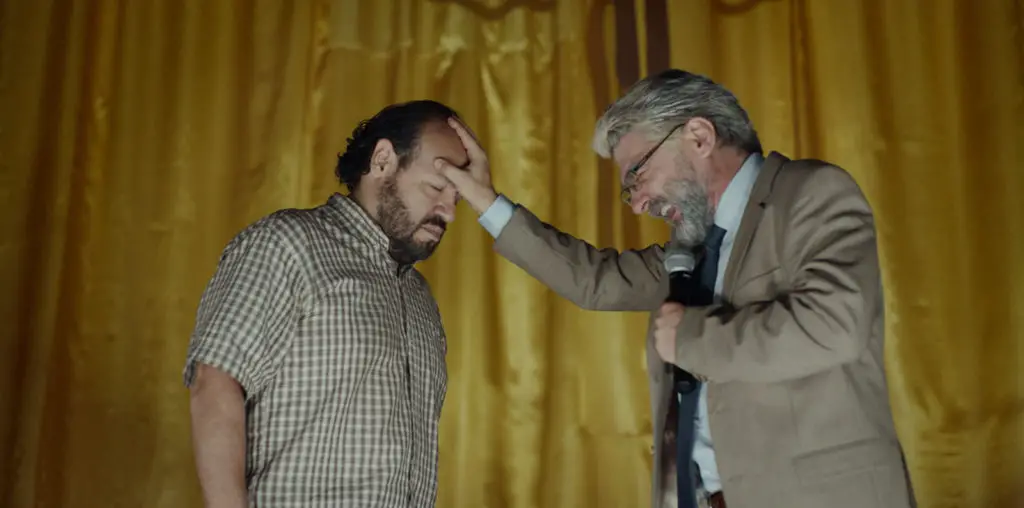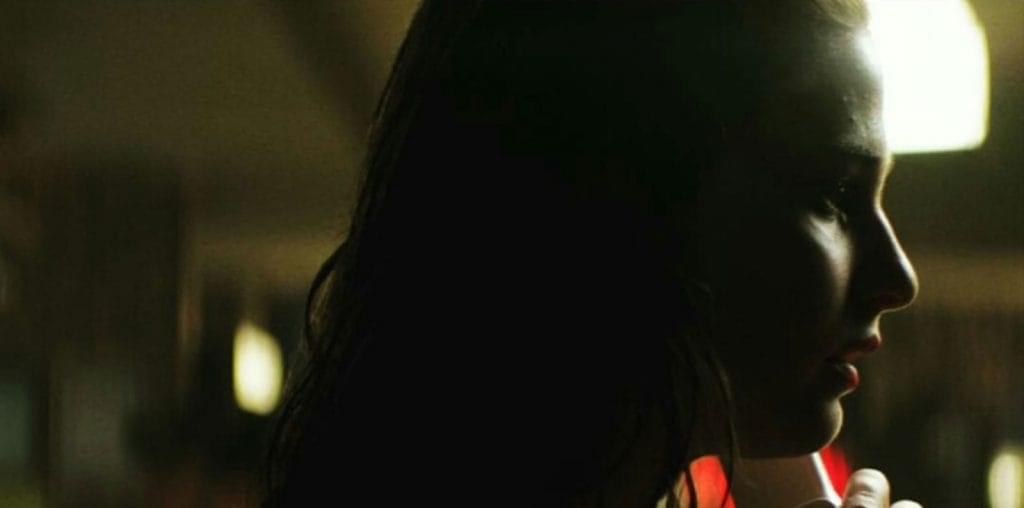
Nine years ago, director Richard Linklater and his adventurous collaborators crafted one of the most delicate cinematic romances of recent years. “Before Sunrise” was a talky, heady, swoony ode to young love that also served as a snapshot of Generation X’s slippery transition into adulthood. It was a unique piece of work, and when production of the sequel was announced, it was easy to imagine the new picture both failing to recapture the magic of the original and even tarnishing the memory of that film.
That “Before Sunset” complements and in many ways surpasses its predecessor is but one of the great accomplishments of this wonderful film.
Whereas “Before Sunrise” leavened its talkiness with jumps in time and with vignettes involving peripheral characters, the sequel is an uninterrupted 80-minute dialogue between two richly imagined and performed characters. In an era when so many arthouse flicks are indie in the flimsiest sense — My Big Fat Greek Wedding and Bend It Like Beckham sure didn’t challenge their audiences — “Before Sunset” is a reminder of what a maverick filmmaker can accomplish by stripping away the excesses of mainstream cinema.
The irony, of course, is that “Before Sunset” is an indie from a studio. It’s the debut film of Warner Bros.’ New specialty division, Warner Independent Pictures.
In the original film, brainy American slacker Jesse (Ethan Hawke) met a gorgeous, equally smart Frenchwoman named Celine (Julie Delpy) on the last day of a European trip. They walked and talked through Vienna, then parted on uncertain terms.
The new movie picks up nine years later, with Jesse in Paris for a book tour promoting his novel inspired by his brief encounter with Celine. She shows up at the book singing, and they walk and talk through Paris. The most obvious mark of integrity in this picture is that the film doesn’t surround the Jesse-Celine conversation with anything other than the sights and sounds of the City of Lights. This creates a powerful intimacy.
Linklater and Kim Krizan, cowriters of the original, wrote the story for “Before Sunset,” and the screenplay is credited to Linklater, Hawke and Delpy. The actors’ close involvement with the material shows in every scene, because their performances are so effortless and beguiling that the veil between actor and character all but disappears.
Yet instead of feeling like navel-gazing muck in which the actors and director vocalize their interior monologues, the film has a distinct structure, momentum and focus. Linklater and his collaborators know exactly the story they’re after, and exactly how to tell that story. Amazingly, this picture containing almost nothing but two people talking never wanders onto tangents — as the fist film did — but rather grooves steadily toward its conclusion with a uniquely cinematic urgency.
The new film doesn’t try to recapture the incandescent romance of the original, because, as the characters discuss with great eloquence, Jesse and Celine have lost the ability to live inside pure love. The characters were likeably narcissistic the first time out, and now they have more expansive views of the universe. Jesse is a philosopher grounded by his role as a father, and Celine is an idealist validated by her work as an environmentalist. Each is bitter about having lost their ability to dream recklessly of a better world.
It would do a disservice to the picture’s elegant narrative to say much more about how the Jesse-Celine dynamic advances in this entry, but it’s not giving anything away to note the movie’s uniformly smart and often funny dialogue. Hawke casually spouts gems like this line about his character’s book being a best-seller: “Most people haven’t read ‘Moby-Dick,’ so why should I give a s**t?” Delpy encapsulates the romantic problems facing modern, independent women in a terrific meltdown scene set in the back of a car.
Hawke has never been this loose and endearing, not even in “Before Sunrise” — during which he displayed a number of affectations that suited the character. And while he sports the alarmingly gaunt look he’s had in his last few movies, Hawke seems more alive onscreen in “Before Sunset” than he ever has.
If Hawke, Delpy and Linklater return to the material again in another decade, Jesse could easily emerge as the great creation of Hawke’s career. While some of his other archetypal Gen-X roles, notably in “Reality Bites,” are well-executed interpretations of ideas rooted in Hollywood artificiality, this character is a pure depiction of the ambivalence that defines so many thirtysomethings. As Jesse says in the new movie, “I feel like I’m designed to be slightly dissatisfied with everything.” Preach on, my brother.
Delpy is, to use that most hackneyed critical word, a revelation. She’s on fire from frame one, shifting gracefully from rants about favorite lefty topics (corporate arrogance, gun violence) to poetic observations about past lovers. Now that Delpy (and Celine) have more years and life experiences behind them, the actress and the character are even more appealing than before. Celine drifted into abstraction in the first movie — she was, after all, a Gallic dream girl occupying center stage in a romantic fantasy. Now she’s a complete person. Hell, she even sings! Delpy performs one of her own compositions onscreen, and more of her songs appear on the soundtrack. And really, that meltdown must be seen to be believed. The vigor with which Delpy moves through Celine’s mood swings in that scene, and in the picture as a whole, is mesmerizing.
While the picture is by its nature an acting showcase, Linklater’s sure hand is the reason the material comes together. He couldn’t possibly do more to get out of the way of his actors, because his camera style is utterly without vanity. Filmed primarily with over-the-shoulder angles and with long, Woody Allen-style tracking shots, “Before Sunset” is deceptively simple. The real craftsmanship shows in the architecture of the story, and in the deft ways Linklater connects the new film to the original. For instance, “Before Sunrise” had a good deal of amusing and pointed content pertaining to Jesse being an “ugly American” who speaks only one language. That has evolved into the new movie’s material about Jesse being an armchair progressive who just b*****s about world problems, while Celine actually does something about those problems through her environmental work.
Critics and movie buffs expend great energy bitching about egomaniacal directors who insist on putting their stamp on every shot, but watching Linklater’s robust movie puts the lie to that argument. If anything, directors who autograph their movies so obviously have fragile egos, because it takes great confidence to remove one’s signature from the process that way that Linklater does in “Before Sunset.”
In another fun irony, however, Linklater’s authorial voice permeates every scene simply because the film is so invested with his intellectual brand of humanism — or, if you prefer, his humanistic brand of intellectualism.
But don’t let all of this talk of representing a generation, addressing political issues, and verbalizing the subtleties of romantic strife give you the idea that “Before Sunset” totally lacks the erotic glow of the first picture. It’s hard to imagine a bigger turn-on in movies this year than a particular moment when Celine catches Jesse by surprise. As they ride a tour boat along the Seine, with the soaring towers of Notre Dame rising nearby, she wistfully recalls the way the sun caught the red hairs in his brunet goatee the morning after their unforgettable night nine years ago.
Linklater ends the new picture an another ambiguous note, but the ending is so perfect that it’s tempting to hold one’s breath waiting to see where Jesse and Celine find themselves in 2013.
Disagree with this review? Think you can write a better one? Go right ahead in Film Threat’s BACK TALK section! Click here>>>

